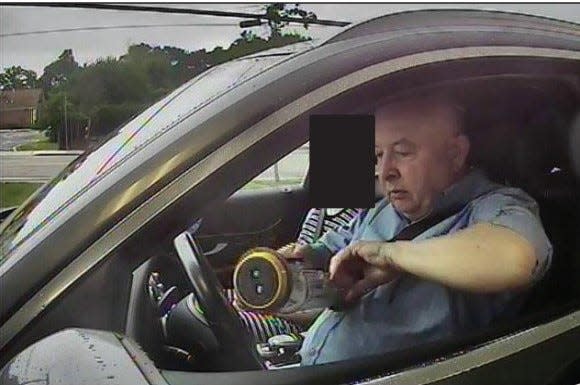RI man to plead guilty to laundering $35M in scam money. How he did it.
BOSTON – A Rhode Island businessman has agreed to plead guilty to laundering more than $35 million in proceeds from Internet-romance and elderly-fraud schemes, the U.S. Attorney's Office in Boston announced Thursday.
Craig Clayton, 73, of Cranston, described as the owner of a "virtual CFO" business operated from his home on Parkside Drive, laundered the money by creating shell companies and opening fraudulent business bank accounts, acting U.S. Attorney Joshua S. Levy said in a news release.
Clayton has agreed to plead guilty to one count of money laundering conspiracy and one count of obstruction of justice, Levy said.

How did the scheme work?
From 2019 to 2021, Clayton and others used his accounting and "virtual CFO" business, Rochart Consulting, as a front to launder proceeds from the schemes, the U.S. Attorney's Office said, attributing the information to the charging documents.
The charging documents allege that Clayton founded shell companies to open business bank accounts in Rhode Island and Massachusetts, Levy said. Clayton would typically incorporate shell companies for his clients, then open one or more bank accounts for those companies, according to an affidavit from Lori Robinson, a special agent with the Department of Homeland Security in Boston.
More: Overnight, thieves made off with $488K from RI bank. Police say this is how they did it
Victims would then be directed to send money to those accounts, then Clayton or his clients would quickly send the money overseas to accounts in countries including China, Switzerland, Austria, Hong Kong, Thailand, Singapore, India, Ukraine, Malaysia, Poland and Turkey, Robinson said in the affidavit filed in U.S. District Court.
The victims were generally people who thought they were sending money to a potential romantic interest or elderly people who'd been tricked in a high-pressure business scam, Robinson wrote.
"Based on my training, experience, and the investigation in this case, I am familiar with different types of fraud schemes committed via the internet," Robinson wrote. "One such online fraud scheme known as a 'romance scam' generally involves perpetrators creating fictitious profiles on online dating or social media platforms, gaining the trust of potential victims, and then directing those victims to transfer money under false pretenses."
She continued, "Another type of online scam is generally referred to as 'elder fraud' because thesetypes of schemes target the elderly. Although elder fraud can take a variety of forms, it generallyinvolves a perpetrator contacting an elderly victim, gaining the trust of the victim, and using high pressure tactics to convince the victim to transfer money under false pretenses."
Scammers from outside the United States like to set up bank accounts here because their potential victims either can't sent money to foreign accounts or foreign accounts raise suspicions with them, according to Robinson.
"Further, it is difficult for international conspirators to open bank accounts in the United States under the BSA (the Bank Secrecy Act)," Robinson wrote. "And based on my training and experience, I know that persons who launder fraud proceeds often try to conceal the nature of the fraudulent schemes and the disposition of the proceeds by incorporating shell companies and opening the bank accounts in the names of the corporations."
One such shell company was Providence Sanitizer, which purportedly sold hand sanitizer, Robinson wrote, but actually received and laundered at least $16.8 million.
At some point, Clayton realized his activities had drawn the interest of authorities.
Prosecutors allege that in encrypted communicationsto a client co-conspirator, Clayton expressed concern that his phone was “tapped” by law enforcement and sought to obtain “dirt” on a victim who had reported the fraud scheme in order to “distract the police," Levy said.
Clayton also lied to bank personnel and federal agents, the U.S. Attorney alleges.
Clayton has agreed to forfeit more than $330,000 and a Mercedes-Benz sport-utility vehicle – proceeds from the conspiracy, Levy said.
A plea hearing has not yet been scheduled.
This article originally appeared on The Providence Journal: U.S. Attorney: RI man laundered $35m in romance and elder scam money
